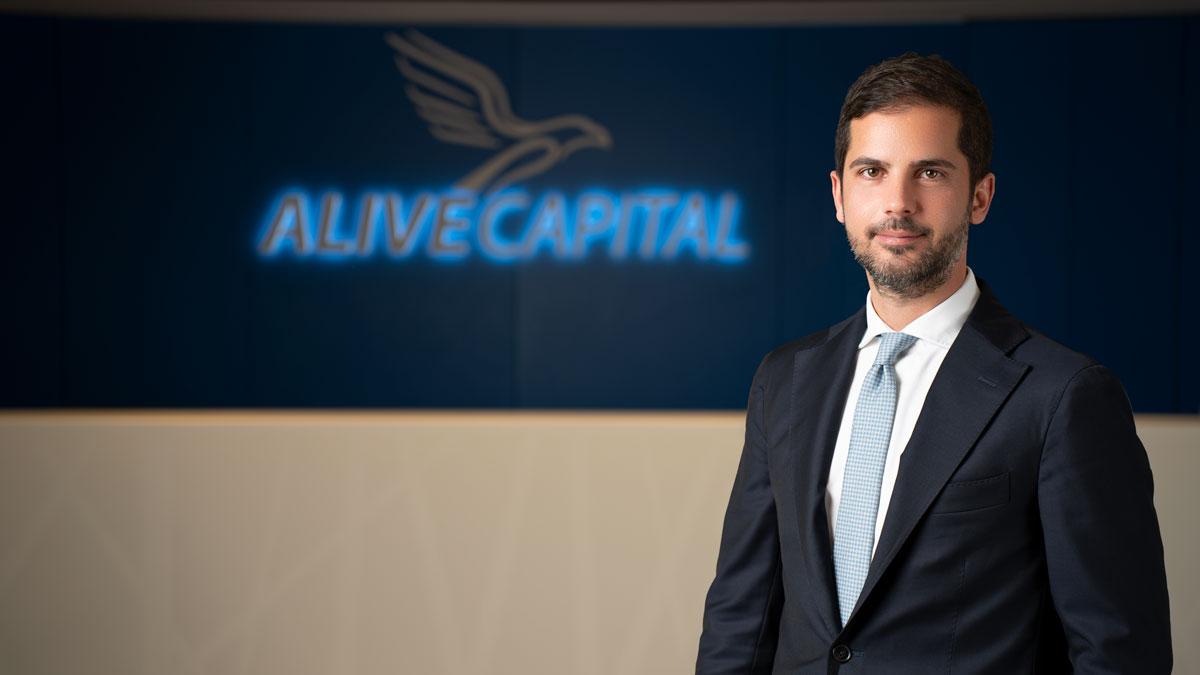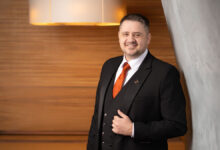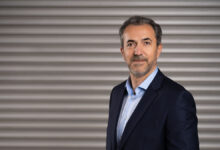Giacomo Billi, Founder & CEO of Alive Capital: From Passion to Performance
Giacomo Billi is the Founder and CEO of Alive Capital S.A. He holds a bachelor’s degree in finance and banking from Libera Universita Maria Ss. Assunta in Rome and a Master’s degree in Business Administration (MBA) from Luiss Business School – Università Luiss ‘Guido Carli’.
Giacomo began his career in a managerial position at London Metal Exchange before moving to Milan, working as an asset manager for several investment funds active in the real estate sector, including Deutsche Bank Group and Synergo Venture Capital. Later on, his experiences helped him develop several business lines in Italy and Eastern Europe, focusing especially on his passion: Renewable Energy.
Alive Capital was founded by Giacomo Billi in Romania, in 2013. Initially, the company offered asset management services and succeeded in developing over time the energy management, electricity supply, dispatching and operations & maintenance offers. Today, Alive Capital has become a key player on the Romanian market in terms of high standards and efficiency of the services provided to renewable energy producers, as well as to other customers.
Giacomo Billi recounts how his passion for renewable energy brought him to Romania more than 10 years ago and explains how creativity and perseverance lead to performance and success.
Where the story begins
Giacomo Billi was only 18 when he started working in different fields, the main one being finance and banking. His first position was that of Fund Manager as part of the Deutsche Bank RREEF Alternative Investments, where he administered assets upwards of 9 billion EUR.
“I really do believe Steve Job’s words: every stage in life is just a steppingstone towards future evolution. Life constantly supplies you with challenges and surprises that are more or less pleasant. You have to constantly be ready for change. After 15 years spent in Rome, London, and Milan, I came back home to Tuscany, where I worked in a multinational construction services corporation. The company handled the construction of logistical halls, and my contribution was building photovoltaics on the rooftops—based on a popular Italian support scheme at the time: Conto Energia (a 30% subsidy of the cost for photovoltaic installation on the roof of factories).”
Creativity and dedication
“That is when I created a patent, a registered brand for a technical solution, partnering with Schuco the Italian Subsidiary: the frameless photovoltaic panels were becoming a part of the roof. The new technical solution was transforming the roof of the building into a photovoltaic power station,” Giacomo added.
“The new solution turned out to be a commercial success, so in approximately two years we ended up building close to 600,000 square meters of photovoltaic panels, or 60 MWp. However, the company I was working for, a multinational corporation present in Spain, Italy, and France, with a fiscal value of 300 million EUR, underwent restructuring in 2012. This was due to the real estate crisis that started in 2008.”
This was the moment when Giacomo was approached by a very important industrial group from Florence, a company which up until recently was the owner of the biggest renewable energy producer in Italy. He was appointed as official representative of said company in Romania, where the renewable energy sector was extremely dynamic and effervescent, an extraordinary growth potential for the following years.
Romania, a real opportunity for RES
Consequently, on the 26th of October 2012, Giacomo was boarding a flight to Bucharest. The following days were a mix of industry conferences, meetings with a community of professionals and hundreds of investors interested in renewables (RES). Upon his return to Italy, he redacted a well-grounded business plan that served in convincing his business partner to start a JV in Romania – 50% ownership.
He started his activity in Romania with two photovoltaic parks. Two more were swiftly acquired and built in record time, summing up a total of 9 MWp.
Initially, there were two photovoltaic parks summing up 1 MW at Izvoare and Brosteni, another 5 MW at Stalpu Buzau, and 3 MW at Ramnicu Valcea. In two years, all the parks had been connected and had been awarded green certificates. From the acquisition date of the projects – 14 May 2013, up to the 26th of August, 5 MW of renewable energy had been built, connected to the electrical grid, and certified. No doubt, a real record. Selling and substantially profiting from these parks was however suspended, as a consequence of the government’s alteration of the support scheme for renewable energy on 14 March 2014. This change drastically reduced the profitability of businesses in this field. Some were even in danger of not being able to repay the credits they’ve contracted.
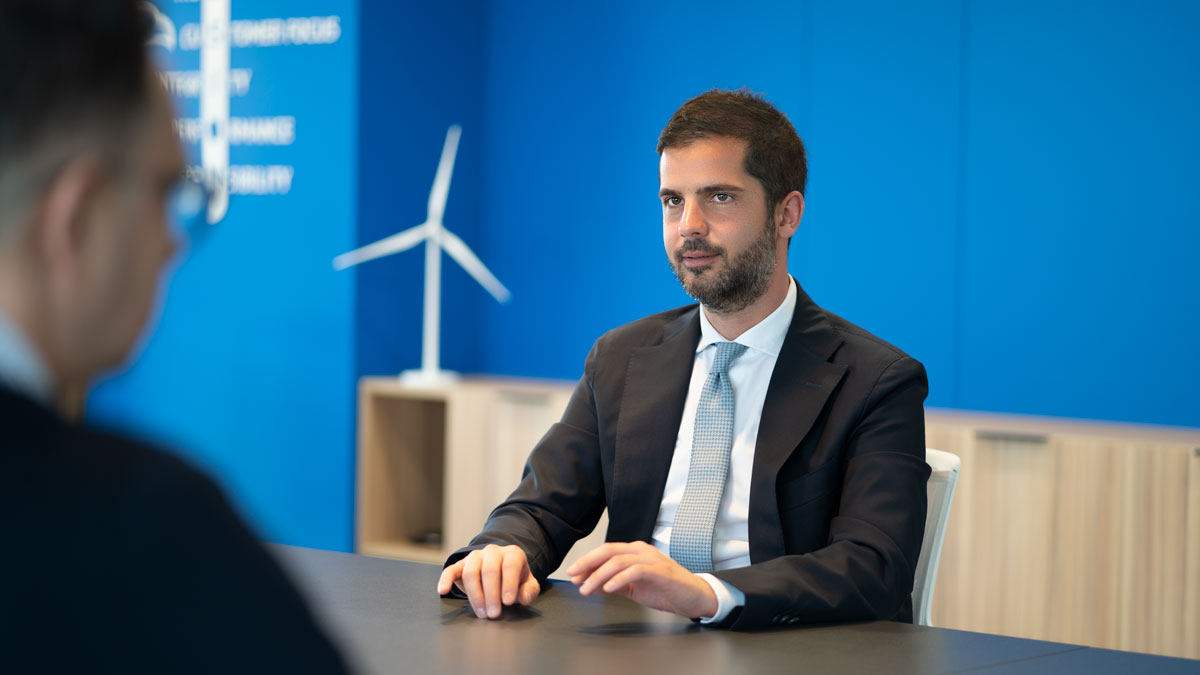
Under the same umbrella
Giacomo parted ways amicably with his business partners and decided on settling down in Romania, having an eye for the opportunities this country offers investors in renewable energy. He took on the Energy and Asset Management role, starting Alive Capital on the same business model as the RREEF, where he had started his career.
“Those days, there were around 600 producers of renewable energy, most of them with an installed power of under 3 MW. The role I took on was that of bringing together as many of them as possible under the Alive Capital umbrella. We would offer them complete services: reporting to ANRE, Transelectrica, electricity distributors and so on. Together, they would gain more negotiating power in relation to electricity suppliers and clients.”
“In just three months after starting, we had already contracted 26 MW for asset management services, and ten years later, in 2024, we’ve achieved a combined managed capacity of 750 MWp. That’s approximately 125 producers – photovoltaic parks, wind, and hydropower. We’re proud to offer high quality services to our clients, resulting in efficiency and productivity growth, as well as reducing costs,” the Alive Capital founder explained.
The renewable energy market in Romania: its future, strong and weak points
Looking at the variety of support schemes offered by Romania for renewable energy, we can clearly observe a steadfast commitment to the EU policies in regard to implementing and meeting the objectives related to renewables capacities installed. Romania has been active in developing and installing renewables since 2008. We’ve introduced the prosumer concept in 2019, marking an important step in the sector’s evolution. Up to 2023, Romania has made great strides, installing over 1,4 GW of solar in one single year.
“No other country in Europe has had such a spectacular result in such a short time,” Giacomo added.
According to the Alive Capital founder, Romania is special in Europe for several reasons. “First, the level of specialization of people and the development of renewables is superior to every other European country. You can see this in the growing appetite of investors, the large number of energy and natural gas suppliers and multinational companies, as compared to other EU nations.”
Romania is also EU’s green lung, having the highest wind energy potential in Central and South-Est Europe, according to Eurostat.
In what pertains to the weak points, Giacomo thinks that Romania’s main issue is the constant and abrupt change in legislation, especially those changes that don’t take into account all the involved parties and future consequences. It’s a legal framework based on a short-term strategy. “This is the weakest point I’ve found in 12 years of working in Romania. I feel at home here, I love this country, and I want to contribute to its development by all means at my disposal.”
“Even though changing the legislation happens very quickly, the speed with which the state follows the evolution of the energy system is much slower than in other EU countries. There’s no agility in adopting secondary legislation when the market transforms. If right now we need to install energy storage facilities, you can’t keep a law in effect that stipulates that these facilities are seen as a consumer. You can’t impose the payment of green certificates in the same way you would for cogeneration or transport. Creating storage facilities in order to balance out the national grid is the next strategic target for the energy sector, and the specific legislation has to be immediately adapted in order to encourage investors and, of course, the banks which finance these projects.”
As recently as February of this year, a call for projects was launched in order to stimulate energy storage. What’s more, the Ministry of Energy announced on the 5th of April 2024 the call for projects as part of the Modernization Fund – Key Program no. 1: “Renewable energy sources and energy storage”. The subsidy rises to 167,000 EUR/MW at most, and the total allocation for the call is approximately 80 million EUR.
“An energy system is not sustainable on the basis of renewable energy alone. Storage is absolutely necessary in order to reduce the imbalance between volume and price,” Giacomo highlights.
Important projects and plans for the future
The group of companies, that Alive Capital is a part of, wishes to continue their strategy of organic development and new investments in renewable energy production facilities for years to come.
A recent example is the acquisition of the Da Vinci project by Alive Capital. This is a photovoltaic park located in Nanov, Teleorman county, with a maximum capacity of 23,1 MWp. The project aligns with the development and investment strategy and boasts superior technical qualities. The existing connection to the grid requires only minor updates and is only 100 meters (give or take) away from the park. One of the main advantages is an East to West orientation of the panels, thus optimizing energy production in the mornings and evenings. It also includes a 5 MW energy storage system with a capacity of 10 MWh. Construction work is planned to start in approximately 45 to 50 days from the date of this interview, according to statements from Alive Capital founder.
One of the future plans of Alive Capital is implementing a 50 MW stand-alone storage facility, with a 100 MWh capacity, a new 100 MW photovoltaics project with a storage capacity of 18 MW, a 99 MW wind farm and a 15 MW extension to an already existing wind farm which was purchased in February 2023. Recently, the company extended its portfolio to include 18 MW operational capacity, plus 6 MW ready for construction.
By the end of this year, Alive Capital estimates that they will reach a full renewable electricity production capacity of 250 MW, out of which 150 MW will be operational.
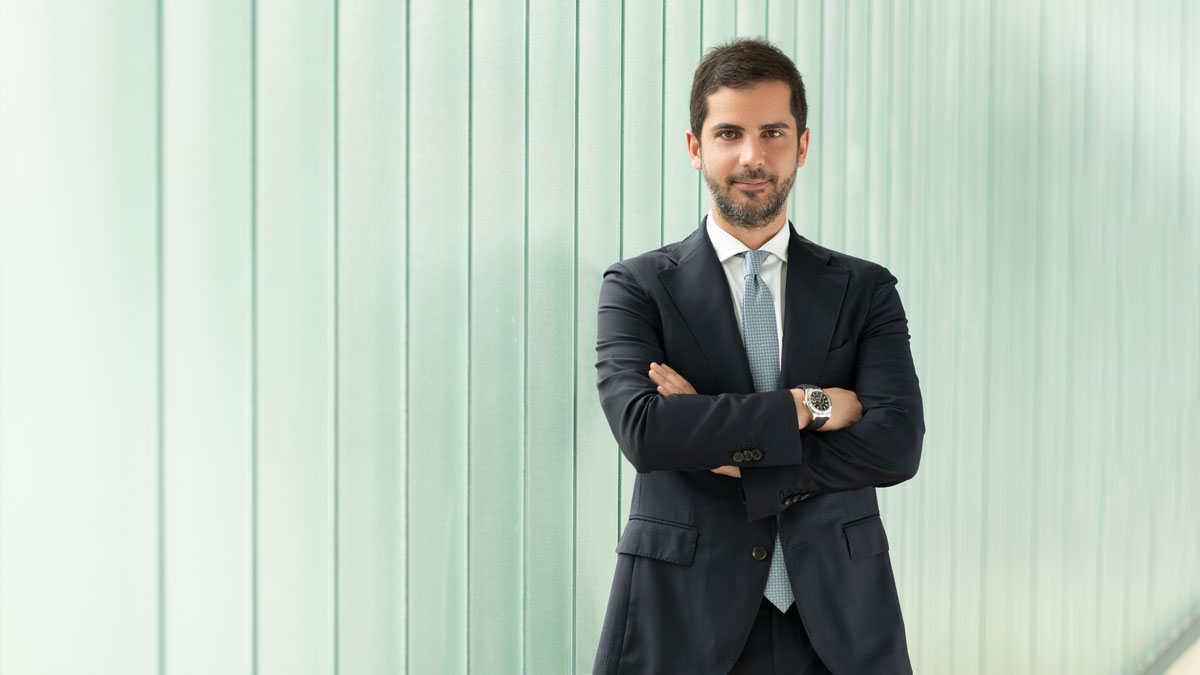
Consolidation or expansion?
Giacomo Billi thinks that expansion without consolidation is meaningless. He supports efficient and well-grounded expansion, based on consolidation. Entering external markets from Serbia, Hungary and Bulgaria is part of his plans.
Thriving on maximum flexibility, the company exports, and imports electricity from Serbia since last year, in a bid to optimize the acquisition and selling price. Alive Capital is also consolidating the production and storage side of the business, via new operations in Timisoara and Ploiesti.
All in all, Alive Capital is continuing its exceptional organic development in Romania while simultaneously expanding on neighboring energy markets.
Perseverance, passion, performance
All the challenges Alive Capital faced on their way to performance have always been overcome by passion. “You can lose perseverance at one point, and this is where passion kicks in. If there’s no passion and no perseverance, you can’t go to the next level. We faced hurdles in 2017, 2019 and 2021 because an entrepreneur’s life is never easy, especially when expansion surpasses consolidation, even though these two elements should run parallel. What’s more, when you’re working in a highly volatile field, such as the energy sector, you must show great flexibility and adaptability in managerial decisions. At least twice in the last ten years, I’ve found myself in situations where passion and perseverance helped me push forward. I’ve also managed to surround myself with the best people in the field,” concludes Giacomo Billi.
Today, the Alive Capital team consists of 40 people who are “worth double”. One of the key principles, insists the founder, is that Alive Capital is a unique one-stop shop, with no competition in Romania, or even Europe. “You can’t easily find another player in the energy field with the kind of total internal horizontal integration of Alive Capital.”
Alive Capital, key facts
Alive Capital started initially with the objective of providing integrated management services to renewable energy producers in Romania.
Since 2016, the company is licensed by the Romanian Energy Regulatory Authority (ANRE) as a supplier of electricity. They are now present and fully operational on the most important central markets managed by the national operator OPCOM. In 2019 they obtained the natural gas supply license, and in 2020 the local Alive Capital Dispatch Department was established.
At the beginning of 2021, Alive Capital becomes an E-RES producer through the acquisition of the Frumuseni photovoltaic power plant (PV Plant). Four years following its incorporation, the company has become a benchmark on the Romanian market in terms of standards and efficiency in integrated management provided to E-RES producers, the current portfolio including both domestic and foreign clients, private investors, multinationals, banks, and institutions, as well as a wide range of technologies: wind, solar, hydro, biomass, biogas.
In February 2022, Emma Capital through Premier Energy PLC—a private investment holding company—enters the company’s shareholding with (51%). Considering the long-term vision of the two shareholders of Alive Capital, it is very clear that the entry of Emma Capital (through Premier Energy PLC) into the company’s shareholding represented an important strategic step, which proved to be very successful.
Giacomo Billi explained that the company he founded, which he once fully owned, has now welcomed a significant partner from the energy sector. This partner brings substantial human and financial resources from both local and international contexts. Simultaneously, Emma Capital has invested in a highly relevant and dynamically growing sector through a stake in a commercial company, well-regarded for its exceptional human resources and its established presence in the Romanian electricity market.
The functioning of the company after the appearance of a new shareholder was accomplished naturally, without impediments or difficulties, based on the excellent expertise, strategy, and track record of the management of the two shareholders.
Premier Energy PLC owns Premier Energy Romania, Premier Energy Furnizare (formerly CEZ Vanzare) and Premier Energy Moldova. Premier Energy, established in 2007, operates on the natural gas market in Romania, as a distributor and supplier since 2013, based on the licenses issued by the National Energy Regulatory Authority. Premier Energy also carries out activities related to the distribution of natural gas, such as connection and disconnection activities from the network, maintenance of connection installations, verification of usage installations, revisions, design, issuance of approvals, as well as expansions of distribution networks.


